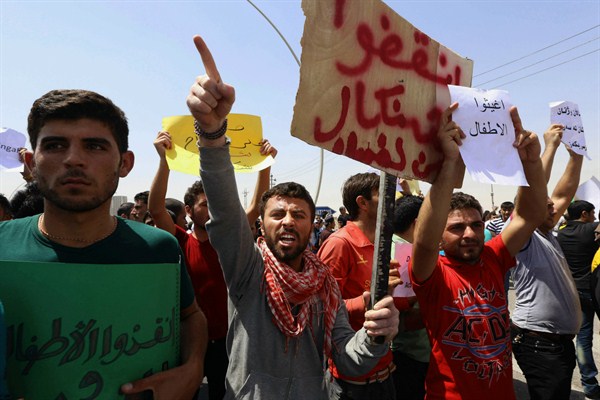Last June, when Iraq’s second-largest city, Mosul, abruptly fell to a militia of ultra-radical Islamists barreling in from Syria, the consensus among international observers was that the stunning collapse of Iraqi forces was the result of Iraqi Prime Minister Nouri al-Maliki’s disastrous policies. Maliki’s sectarian regime had undermined the Iraqi military’s unity, preparedness and willingness to fight.
To be sure, Maliki’s governing approach has proved devastating for Iraq, but events of the past few days point to a much more ominous explanation. The new evidence coming from the Kurdish regions of northern Iraq suggests that Baghdad’s dismal response to the initial onslaught of the Islamic State in Iraq and Syria (ISIS), which has since changed its name to the Islamic State (IS), is only part of the explanation. It turns out that IS, an organization that has shown a chilling depth of brutality matched by extreme and far-reaching regional ambitions, is in fact a powerful and skilled army not easily defeated.
It was almost reassuring to think the IS victories were the result of Iraqi ineptitude. But if the Iraqi army’s flaws were not the only problem, if IS is indeed a threat even to strong and competent foes, then stopping the would-be rulers of the world’s Muslims from steamrolling across the region will require more than finding a solution to Iraq’s dysfunctional politics.

